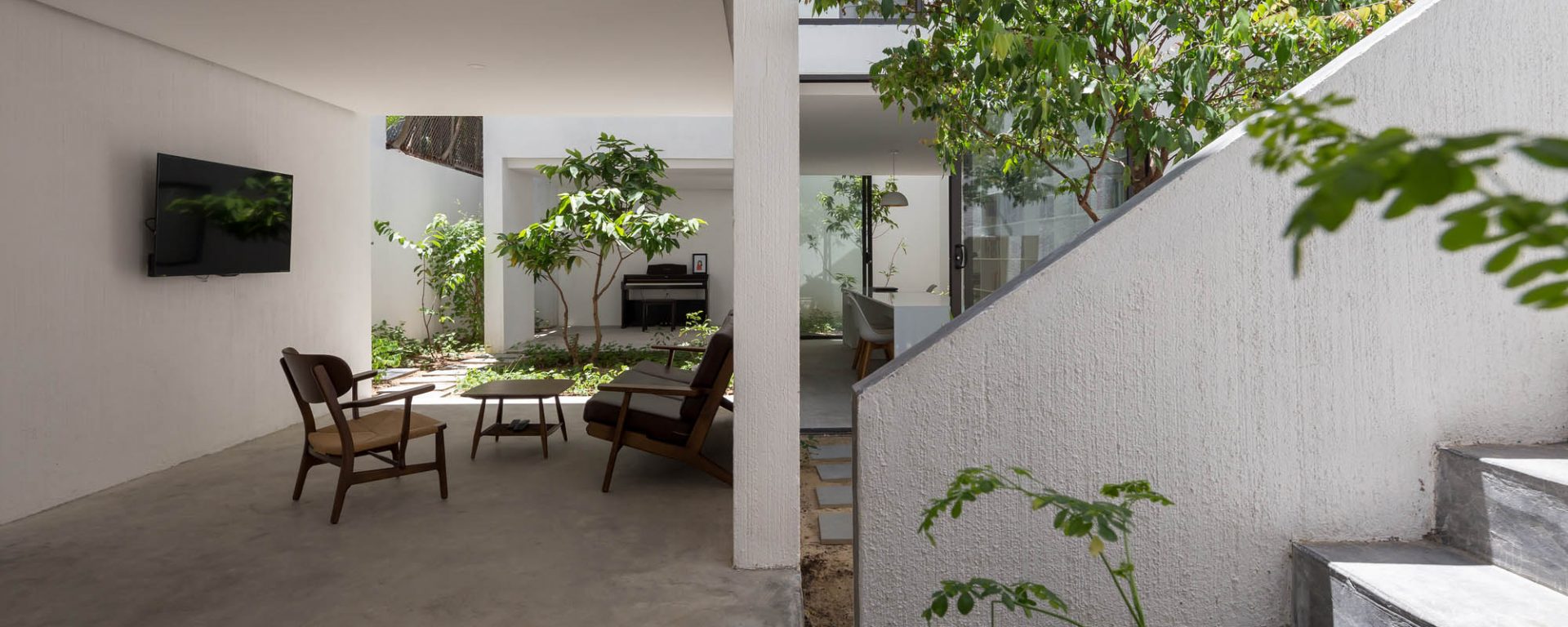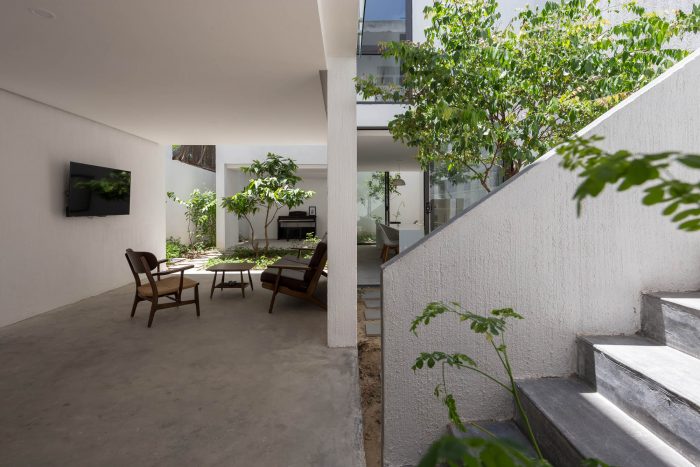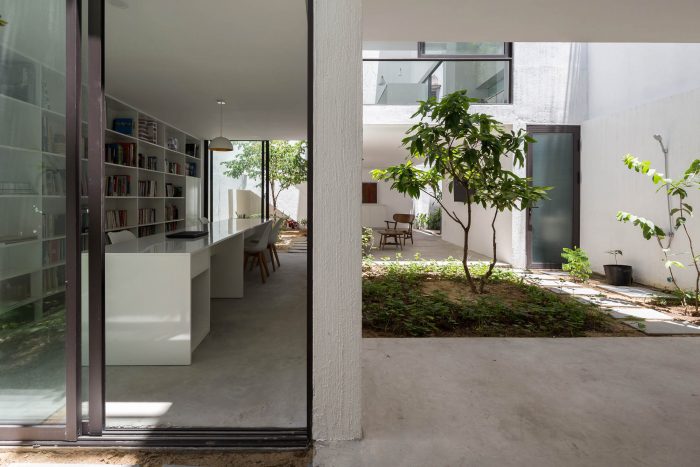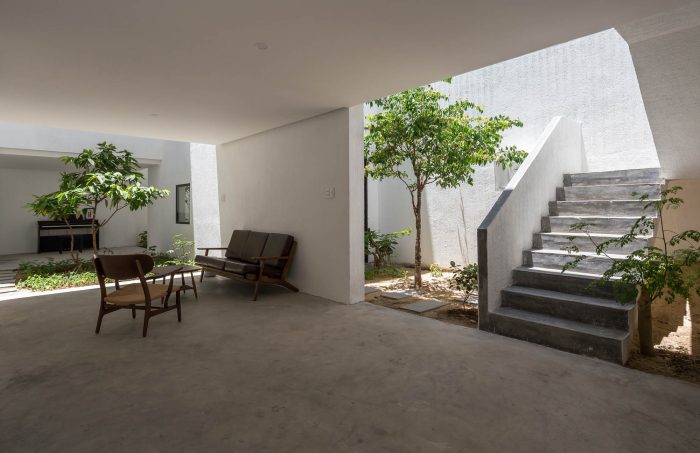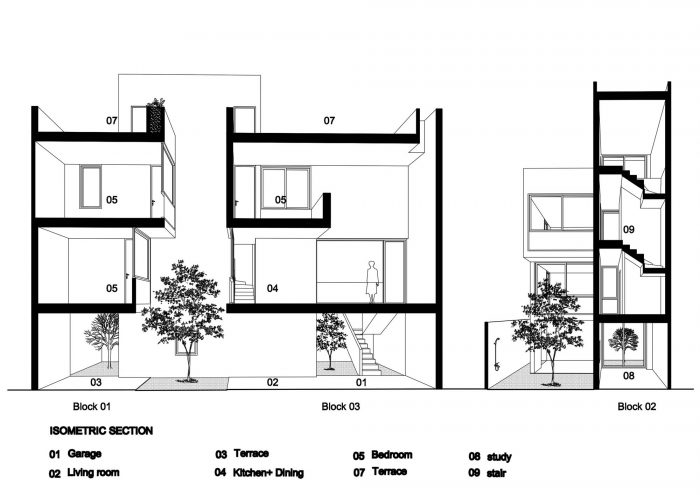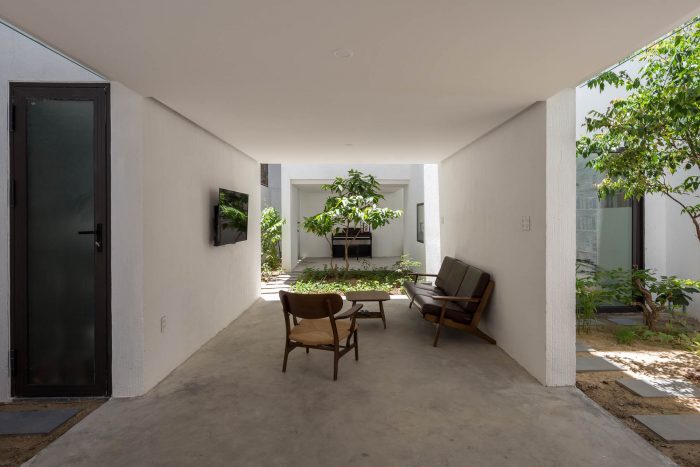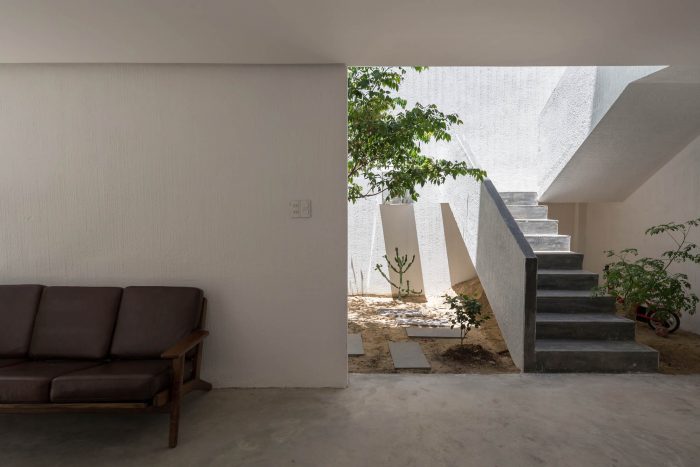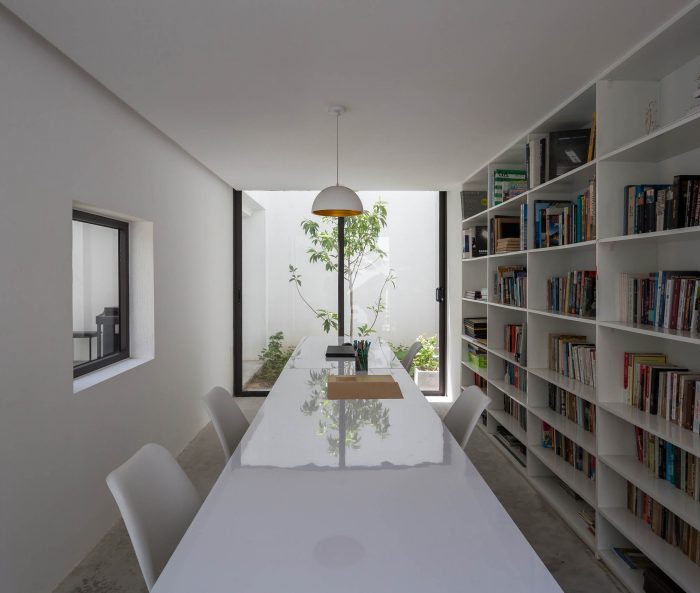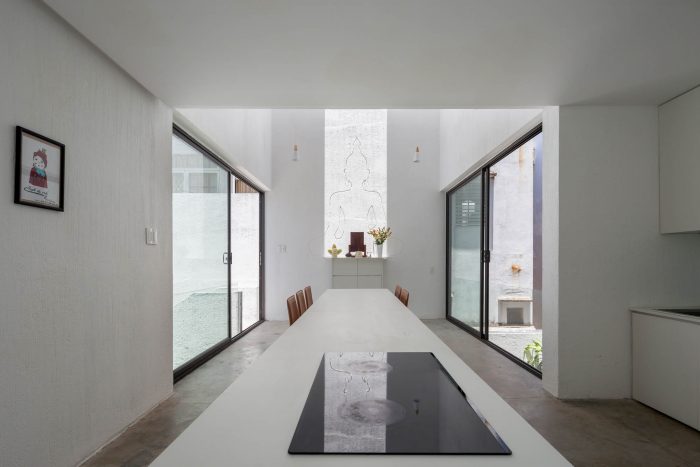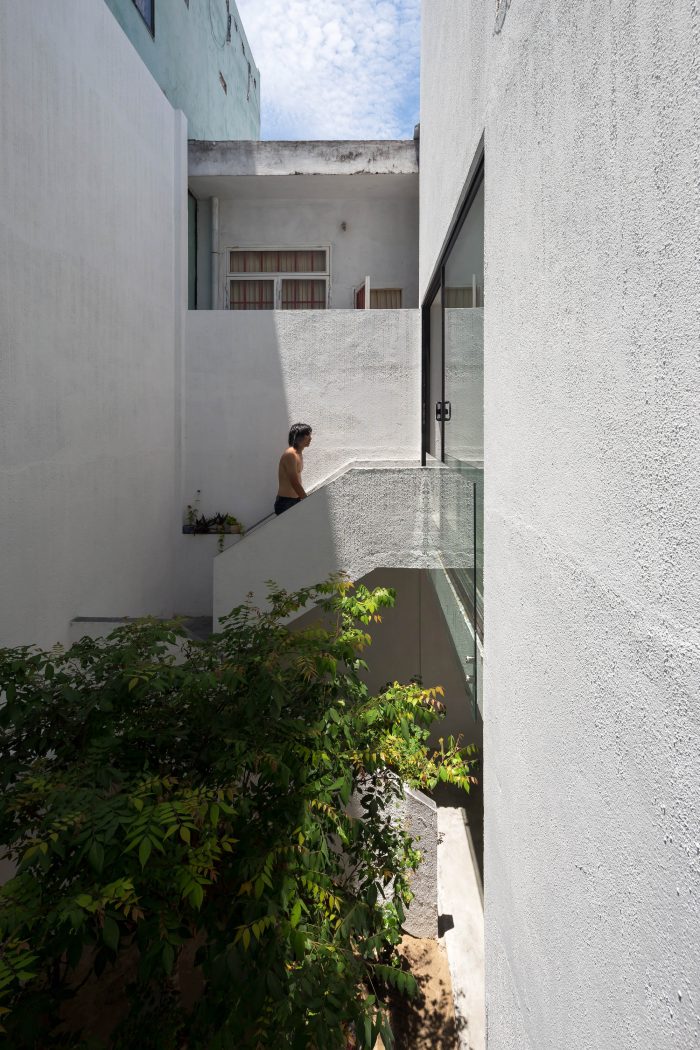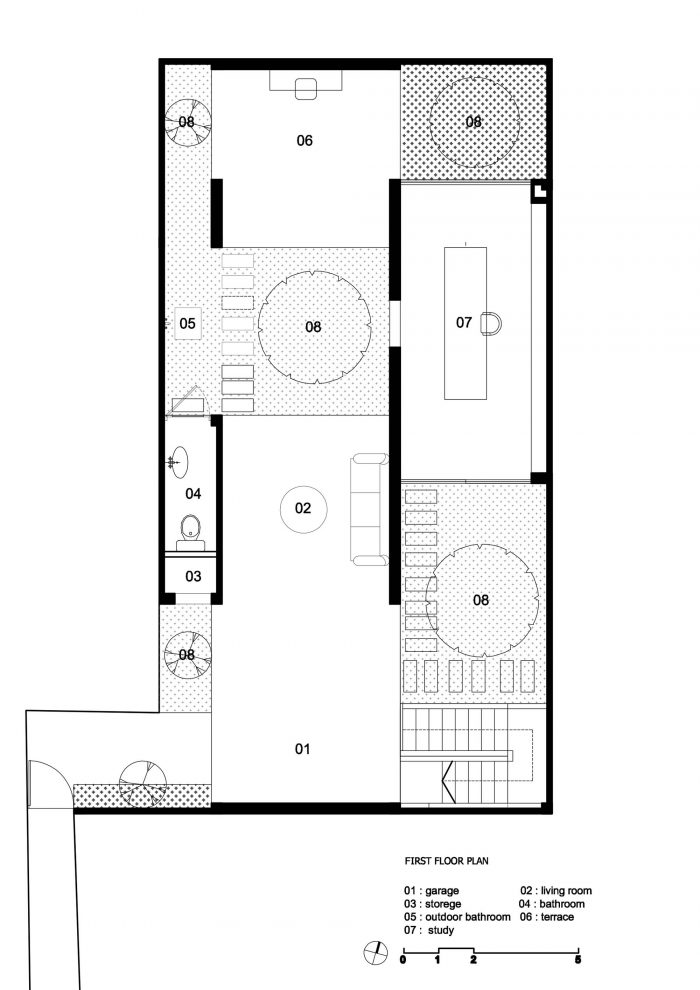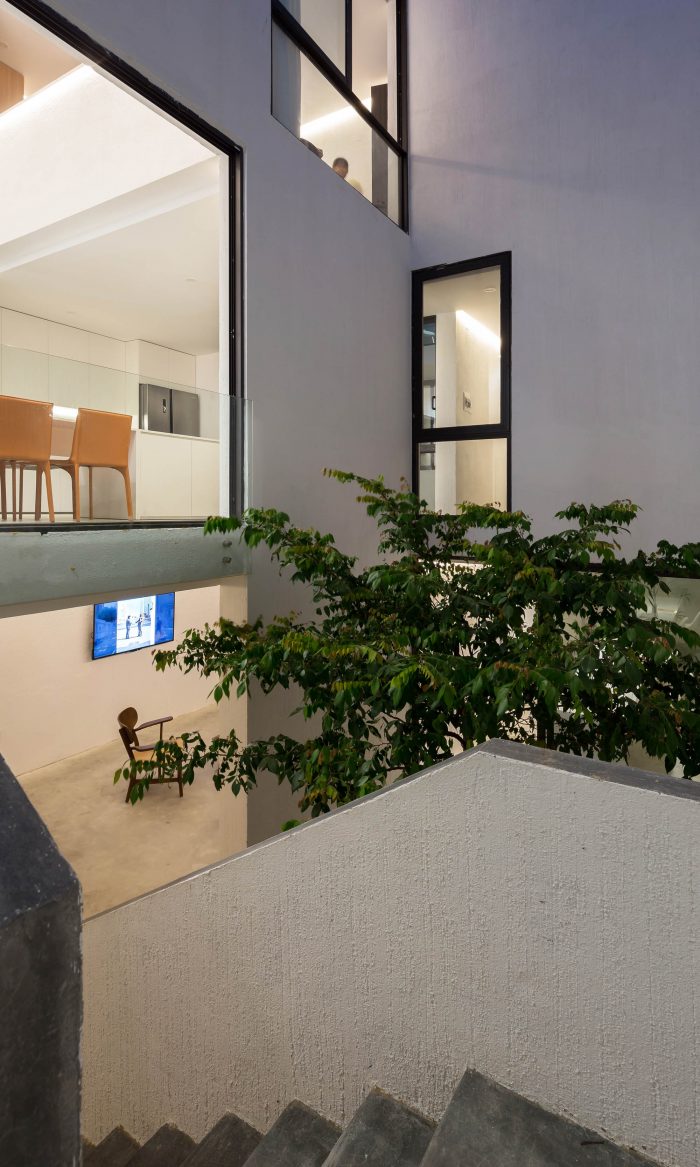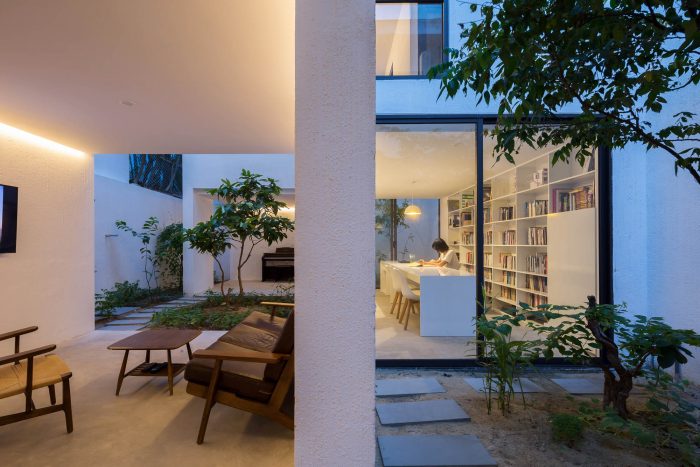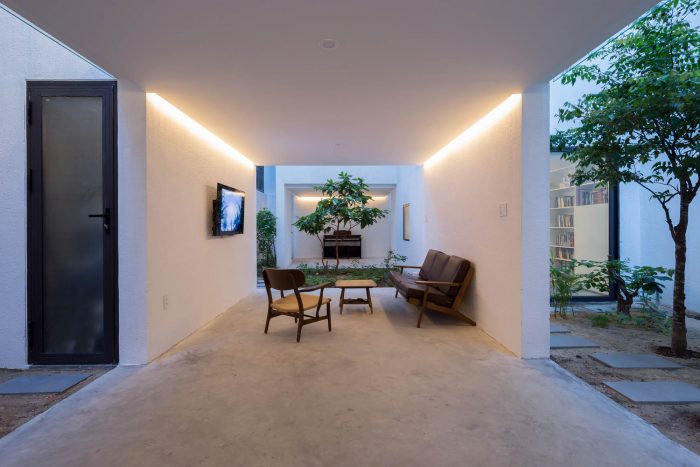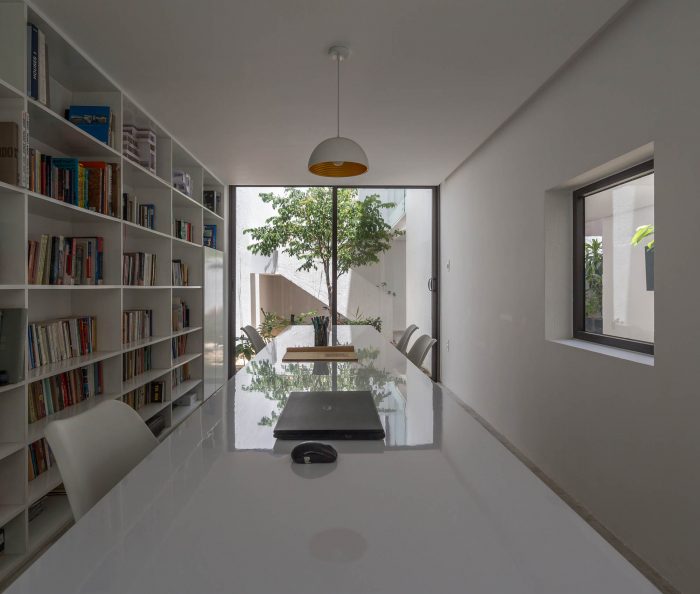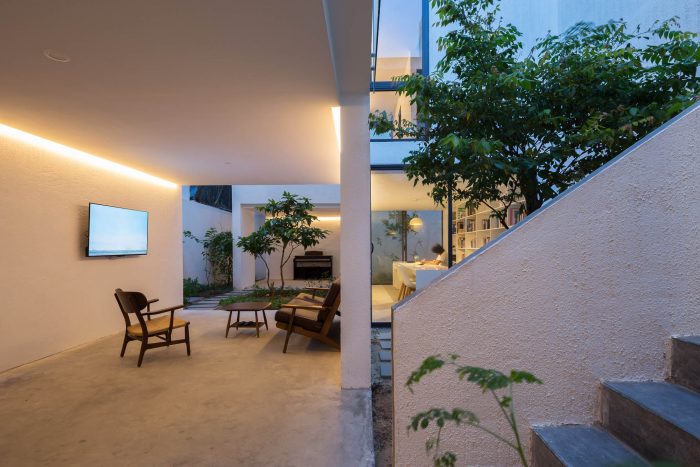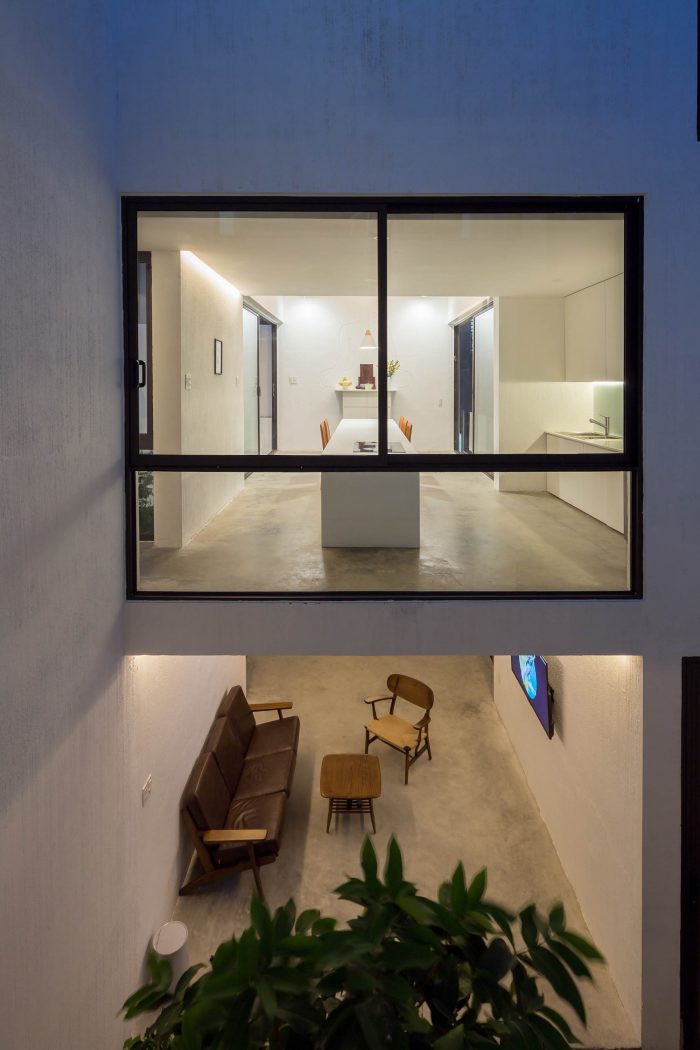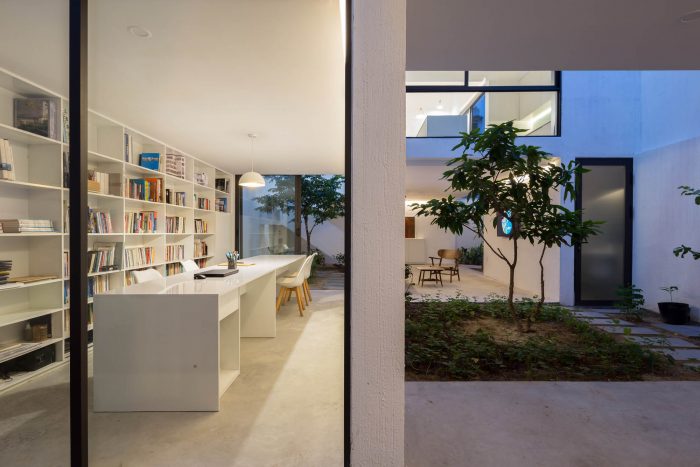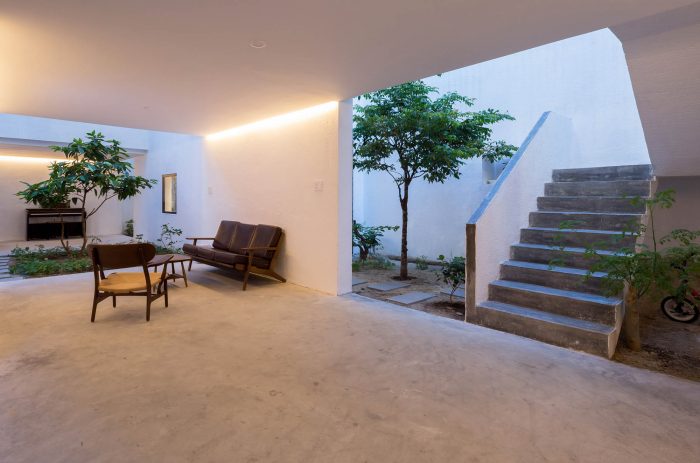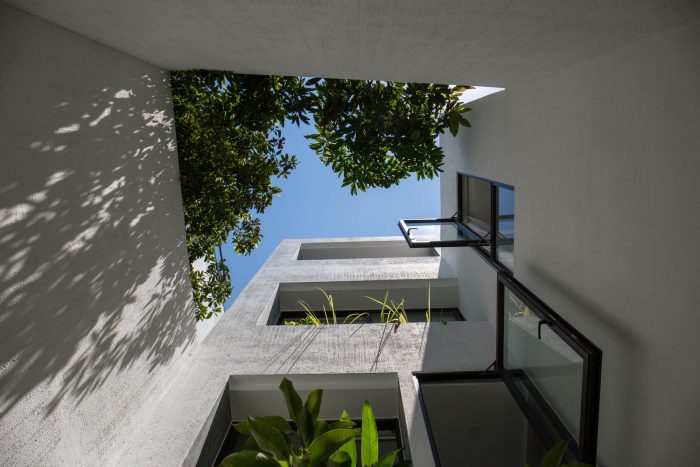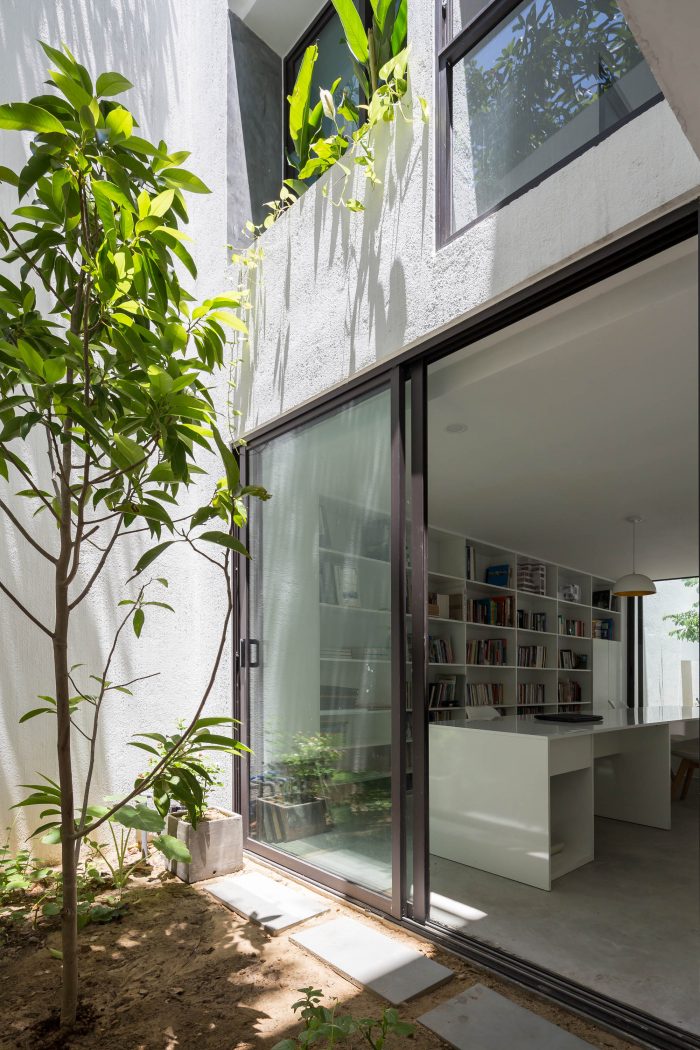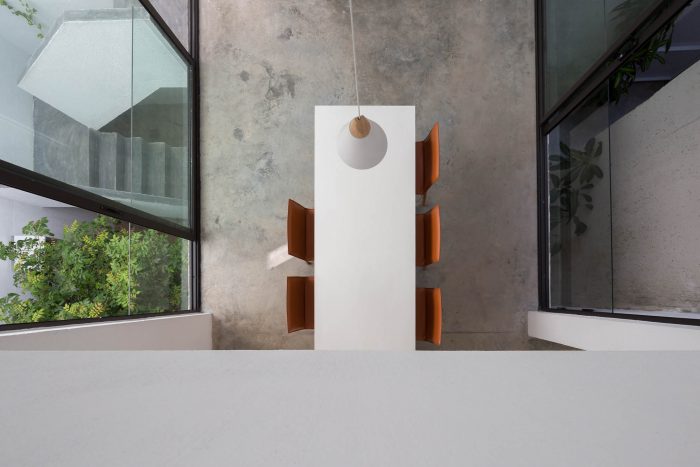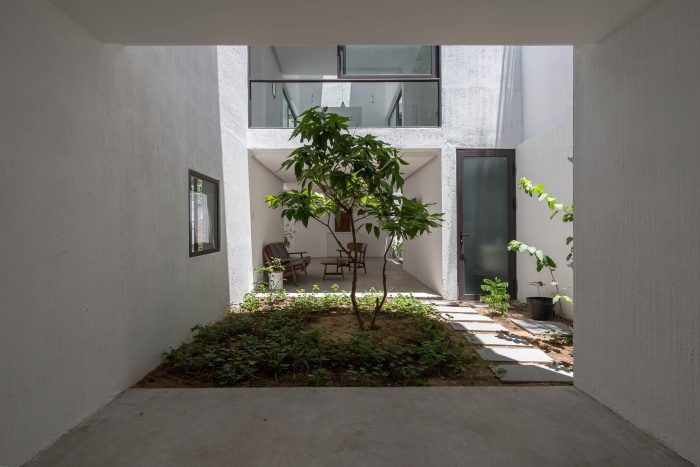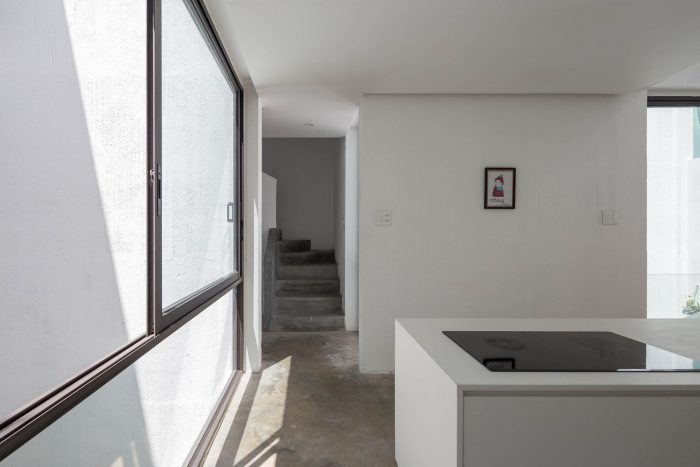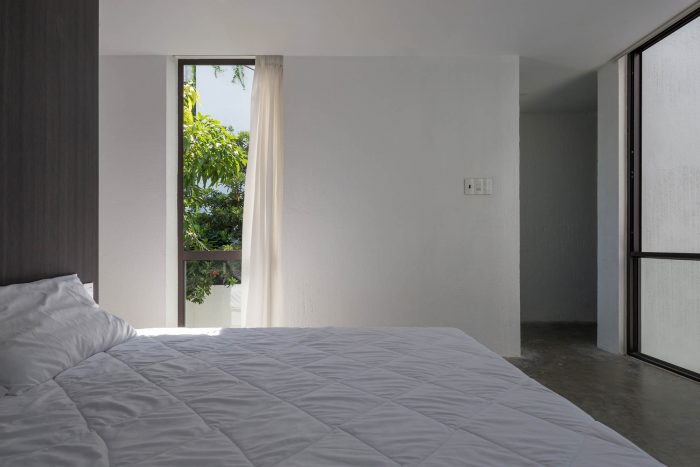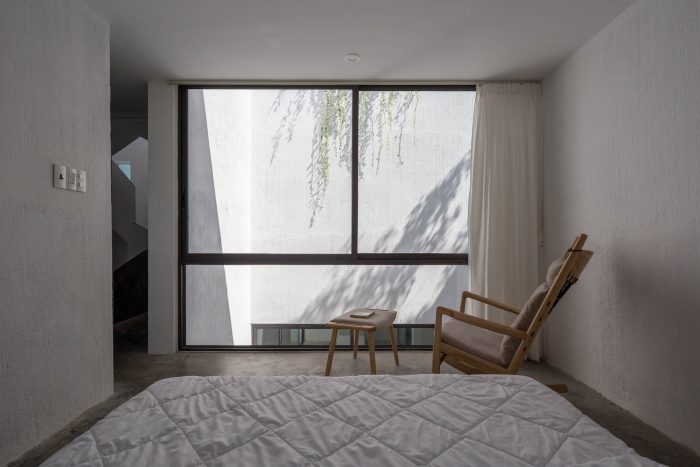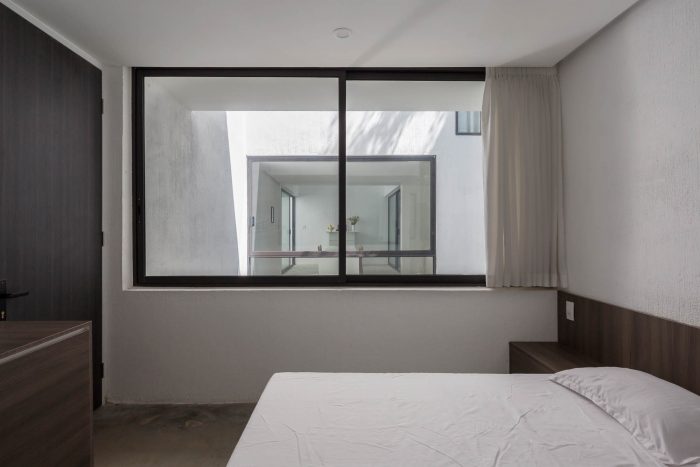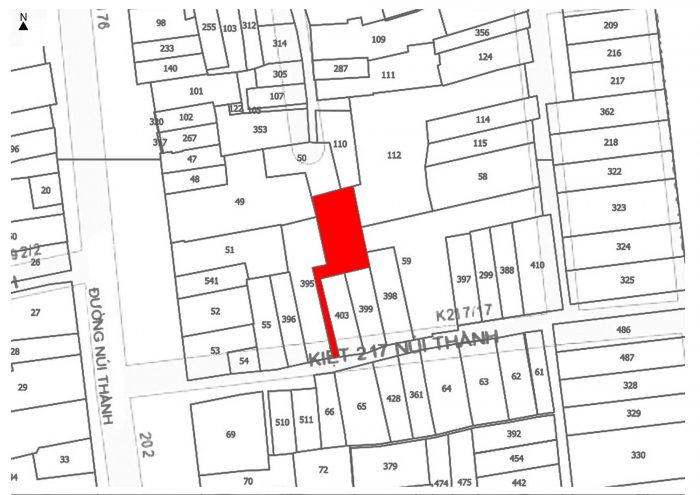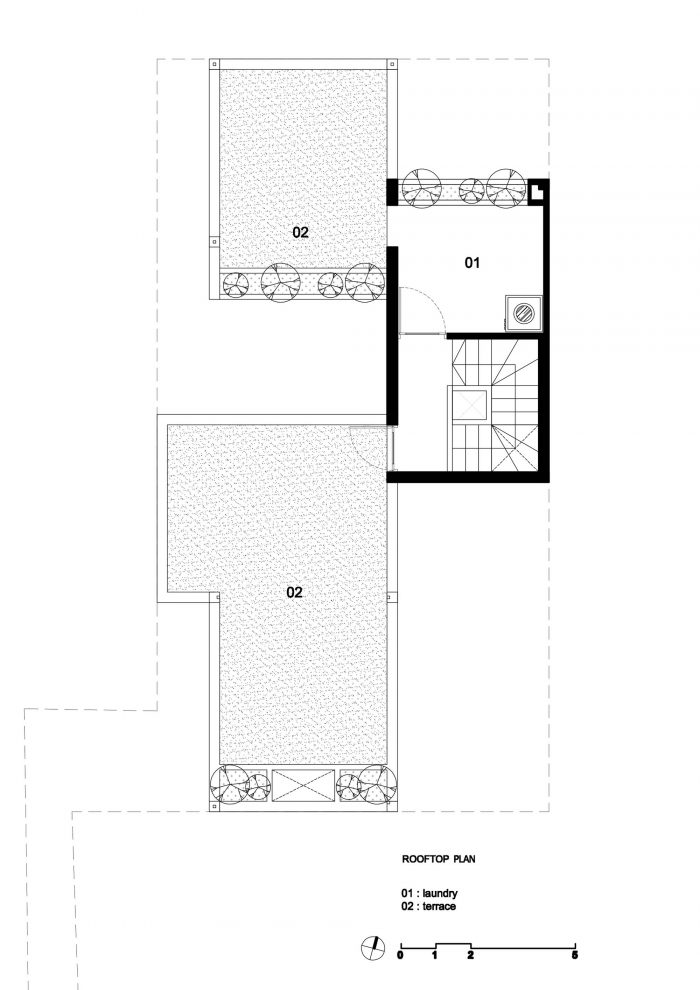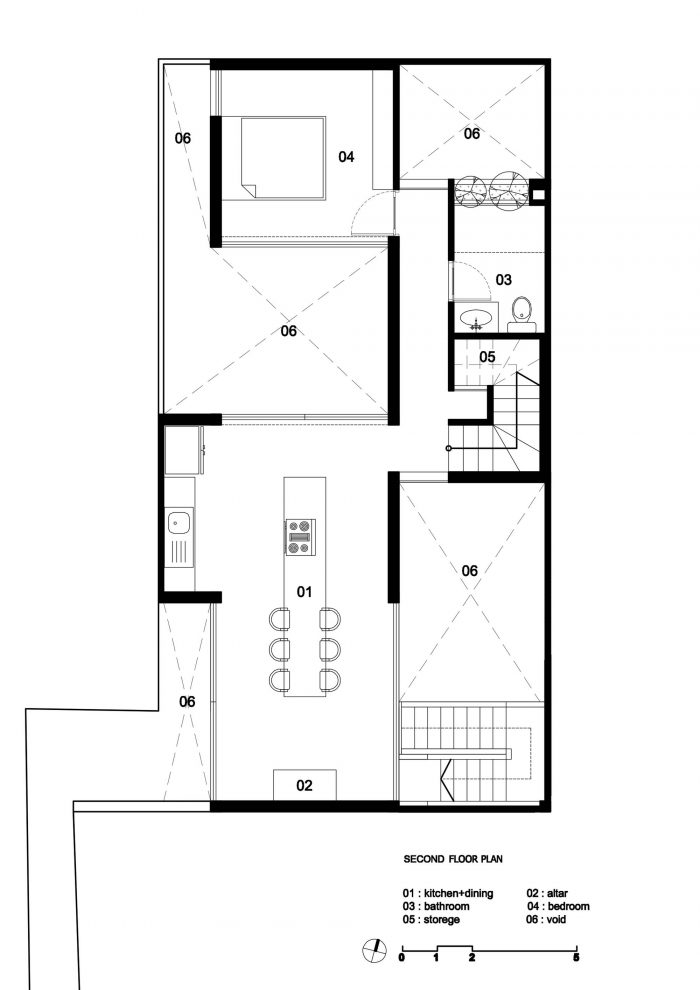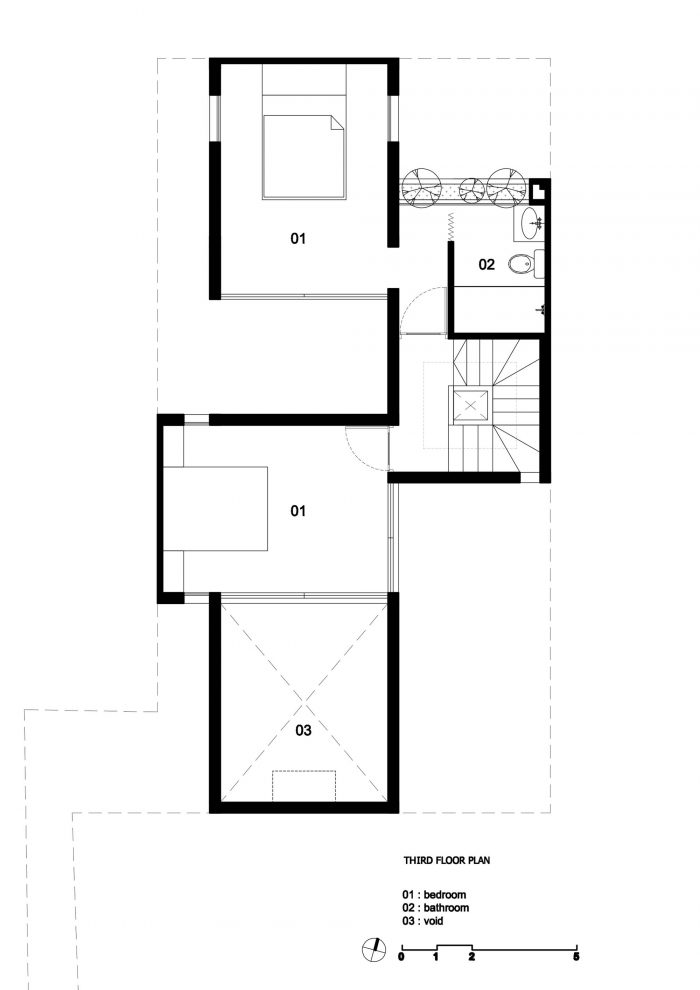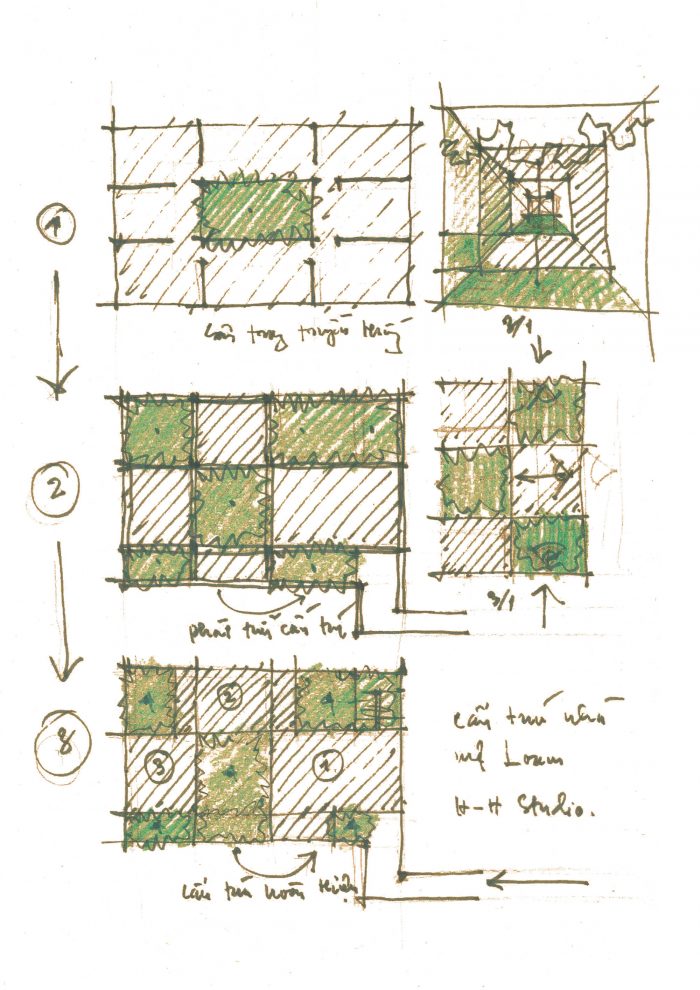地块尺寸为7.5×14.3米,被相邻的建筑所包围,由一条宽1.2米、长16.4米的巷道进入。从传统的庭院住宅中获得灵感,在这个项目中,空间和体量被重新配置为三块垂直堆叠,然后水平偏移,在封闭空间的实体之间引入开放空间的空隙。因此,它创造了围绕居住空间的 “庭院”,这与传统的院落式住宅,庭院被居住空间包围的情况是相反的。
The lot dimension is 7.5 x 14.3 meters, surrounded by adjacent constructions and accessed by an alleyway of 1.2 meters wide by 16.4 meters long. Getting inspiration from traditional courtyard house, in this project, the spaces and volumes are reconfigured to stacked vertically in three blocks and then offset horizontally to introduce the voids of open-spaces in between the solids of the enclosed-spaces. As a result, it creates “courtyards” that revolve around living spaces, which is in reverse to the traditional courtyard house, where the courtyard is encircled by living spaces.
因此,在7.5米×14.3米的地块面积内,通过拥有更多的开放性绿地,我们的项目解决了在气候炎热、人口密集的城镇中,小型联排别墅所面临的这些挑战。
将土地覆盖率降低到50%以下。
创造交叉通风,以达到降温和控制湿度的目的。
利用自然日照。
实现人与人、人与自然的联系。
满足个人对私人空间的需求。
屏蔽周围的噪音和灰尘。
So within the lot area of 7,5 m x 14.3 m, by having more of open, green spaces, our project has tackled these challenges that a small townhome are facing in a hot climate and dense town:
Reducing the lot coverage to less than 50%.
Creating cross ventilation for cooling and humidity control.
Utilizing natural daylight.
Enable connection between human to human, and human to nature .
Accommodating individual’s need for private space.
Screening away noise and dust from surrounding.
由于被相邻建筑的墙体所限制,没有任何后退空间,主楼的布局尽可能地保持开放,以利于自然通风。主层的开放空间可以成为亲朋好友聚会、午后小憩、夏夜睡眠、庭院用餐、园艺、偶尔的团体活动或会议等的适应性用途。
Being confined by walls from the adjacent buildings without any setback space, the main floor layout keeps open as possible for natural ventilation. The main floor’s open-space can become adaptive uses for family and friends gathering, afternoon nap, summer night sleep, patio dining, gardening, occasional group activities or meeting etc.
为了拉近自然与生活的距离,主楼与二楼之间由外部楼梯连接,完全向上方的天空开放。在二楼靠近房子中心的地方,设置了一个祭坛,在那里有一面两层楼高的白色墙壁,显示出佛陀在Bhūmisparśa Mudra姿势的沉浮,光线通过上方的天窗投射到墙壁上。
To bring nature closer to living, the main floor and second floor are connected by an exterior stairway fully open to the sky above. On second floor, near center of the house, an altar is set up where a two-story height wall in white that shows a sunk-relief of Buddha in Bhūmisparśa Mudra posture with light casting down on the wall through a skylight above.
建筑材料要保持最小化,并来自当地,以减少运输和劳动力的污染,省略任何不必要的装饰元素。种植空间用土壤覆盖,以达到季节性园艺的目的。在不使用地坪打磨的情况下,混凝土地面经过打磨,保持天然混凝土的灰色调外观。潮湿位置的墙面接缝用水泥砂浆密封。每面内外墙均采用粗砂抹灰,重扫帚饰面,采用竖刷纹理。
Building materials are to remain minimal and from local sources to reduce pollution from transportation and labor, omitting any unnecessity from decorative elements. The planting spaces are covered with soil for seasonal gardening purposes. Without using flooring polishing, concrete floor is grinded to remain a grey tone look from natural concrete. Wall joints at wet locations are sealed with cement grout. Every interior and exterior walls are plastered using coarse sand, with heavy broom finish in a vertical brush texture.
建筑师: H-H Studio
面积:200平方米
年份:2019年
摄影作品:Hoang Le
厂家:American Standard, Hafele, Xingfa
项目建筑师:Huynh Tuan Huy, Huynh Thuy Vu
设计团队:Tran Van Tuan, Le Trung Cuong, Hoang Trong Đao, Le Phuoc Chin, Duong Cong Ly
城市:Hòa Thuận Đông
国家:越南
Architects: H-H Studio
Area: 200 m²
Year: 2019
Photographs: Hoang Le
Manufacturers: American Standard, Hafele, Xingfa
Project Architect:Huynh Tuan Huy, Huynh Thuy Vu
Design Team:Tran Van Tuan, Le Trung Cuong, Hoang Trong Đao, Le Phuoc Chin, Duong Cong Ly
City:Hòa Thuận Đông
Country:Vietnam

